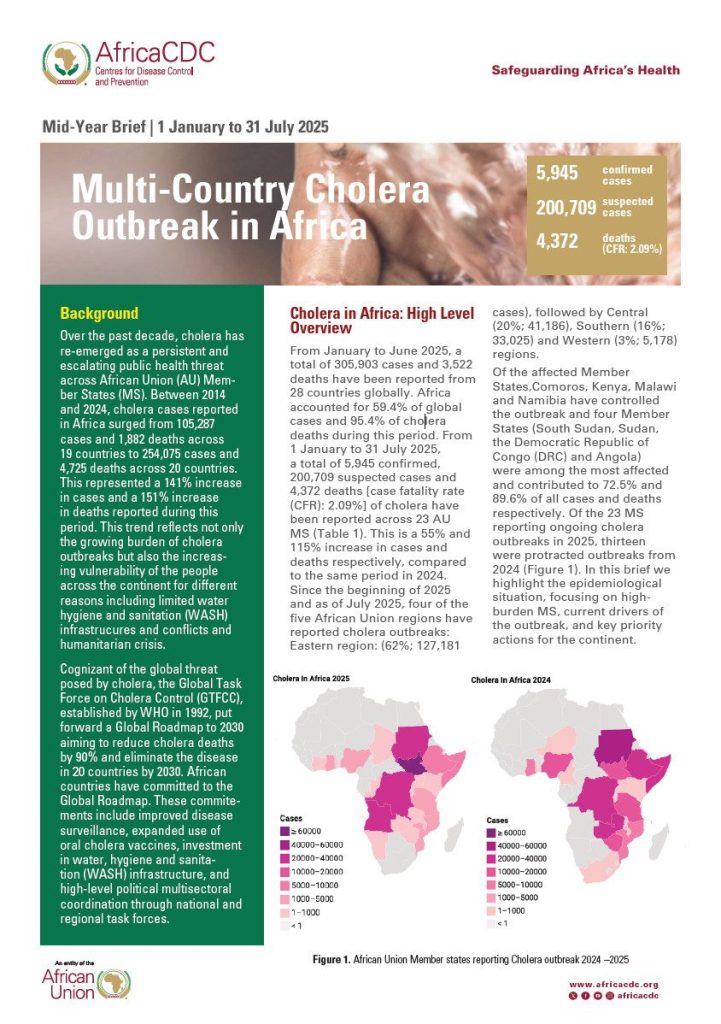Background
Over the past decade, cholera has re-emerged as a persistent and escalating public health threat across African Union (AU) Member States (MS). Between 2014 and 2024, cholera cases reported in Africa surged from 105,287 cases and 1,882 deaths across 19 countries to 254,075 cases and 4,725 deaths across 20 countries. This represented a 141% increase in cases and a 151% increase in deaths reported during this period. This trend reflects not only the growing burden of cholera outbreaks but also the increasing vulnerability of the people across the continent for different reasons including limited water hygiene and sanitation (WASH) infrastrucures and conflicts and humanitarian crisis.
Cognizant of the global threat posed by cholera, the Global Task Force on Cholera Control (GTFCC), established by WHO in 1992, put forward a Global Roadmap to 2030 aiming to reduce cholera deaths by 90% and eliminate the disease in 20 countries by 2030. African countries have committed to the Global Roadmap. These commitements include improved disease surveillance, expanded use of oral cholera vaccines, investment in water, hygiene and sanitation (WASH) infrastructure, and high-level political multisectoral coordination through national and regional task forces.
